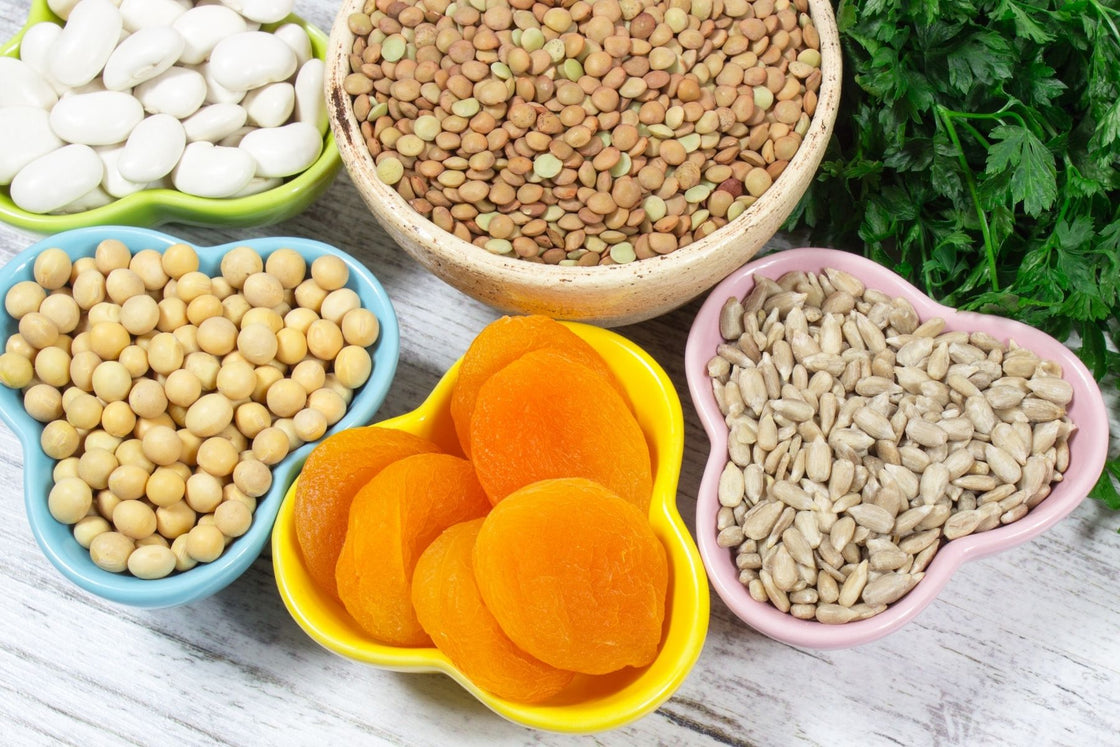As women get older and stop having periods it’s generally considered that they don’t need as much iron. But research does indicate that a small percentage of post-menopausal women are at risk of iron deficiency anaemia. Food Scientist and Nutritionist Susie Debice explains how post-menopausal tiredness and fatigue may be easily corrected by simply focusing on iron and vitamin C.
Whereas iron is often recommended for younger women who experience heavy or prolonged periods, it’s always been thought that post-menopausal women are likely to get all the iron they need from diet alone. This is reflected in the fact that the recommended daily intake for iron drops from 15mg a day to just 8mg a day for post-menopausal women. However, a large American study called the Women’s Health Initiative revealed that some post-menopausal women may in fact be at risk of an iron deficiency more commonly known as anaemia.
Post-Menopausal Fatigue and Iron Status
Debilitating fatigue and unexplained days of tiredness are common symptoms of the menopause and are attributed to fluctuating hormone levels and heavy or prolonged periods as your cycle starts to wind down. Once periods cease and hormone levels settle down most women find that their daily energy levels become more stable and more consistent. However, if you continue to experience tiredness and fatigue after the menopause and you also notice other symptoms such as shortness of breathe, pale skin, headaches and feeling lightheaded then this may be due to a lack of iron rather than your hormones.
Take Iron Supplements with Caution
Both women and men are advised to be careful when supplementing with iron and it’s best to get your iron levels checked by your doctor before jumping in and taking a supplement. This is because having too much iron circulating in the blood is as harmful as having too little. Iron tends to become oxidised very quickly and in its oxidised form it behaves like a free radical with the potential to damage blood vessel walls, cells and body tissues. Focusing on foods that contain iron is a good place to start when it comes to building iron reserves.
Foods Rich in Iron and Vitamin C
Consuming more foods rich in iron is highly recommended, but what lots of women don’t realise is that the intestinal absorption of iron is greatly increased when vitamin C is also present in the gut. Meat contains the haem form of iron which the body absorbs more easily, whereas plants contain the non-haem form of iron which is not so readily absorbed. Eating a combination of both forms of iron is important for building iron stores and supporting iron levels in the blood.
Haem iron: oysters, liver, organ meats, red meat, dark turkey and chicken meat, tuna, mackerel, haddock, sardines, eggs.
Non-haem iron: spinach, kale, broccoli, lentils, chickpeas, soya beans and tofu, navy beans, kidney beans, black beans, pumpkin seeds, quinoa, brown rice, oats, dark chocolate, apricots, raisins, prunes.
Vitamin C sources: green leafy vegetables, parsley, citrus fruit and berries
What about vegans and vegetarians?
Women who choose to follow a purely plant-based diet need to pay extra attention to the non-haem foods listed above. However, because non-haem iron is harder to absorb, it’s even more important to make sure that you also focus on the vitamin C rich foods in your diet. There are of course times when the challenges of daily life make it difficult to achieve a perfectly balanced diet all the time. So, if symptoms arise and you feel that your diet has been lacking in iron rich foods then a short course of iron supplementation could be of benefit.
Iron gluconate is gentle on the gut
Some iron supplements such as iron sulphate are notorious for being hard on the gut and triggering digestive discomfort and constipation. There are forms of iron such as iron gluconate which are gentle on the gut for those that want to avoid tummy troubles. This form of iron is easier to absorb and can be found combined with iron-rich botanical and berry extracts alongside vitamins C, B6 and B12 in Floradix a delicious, easy to take, liquid iron tonic.



